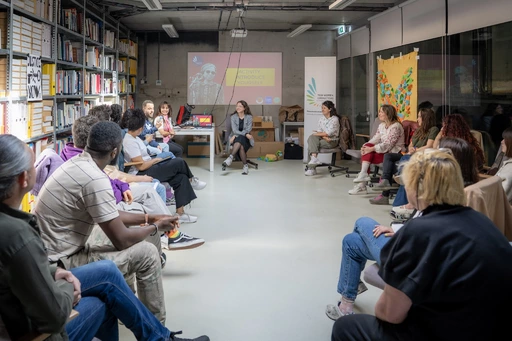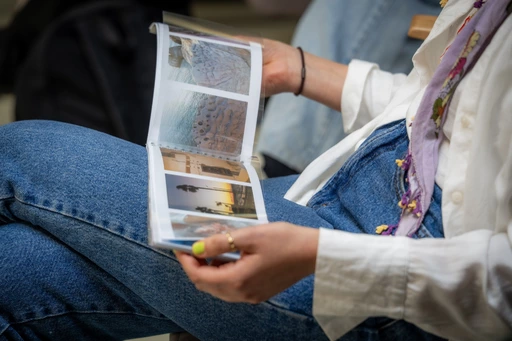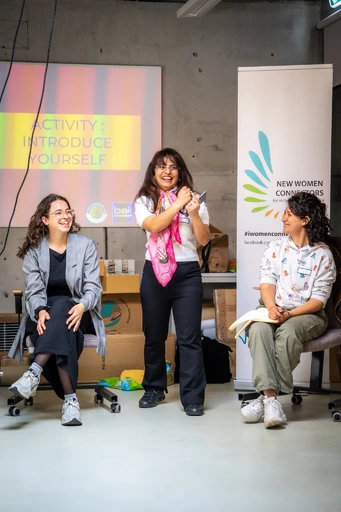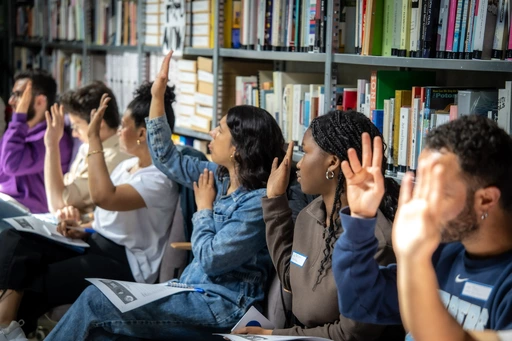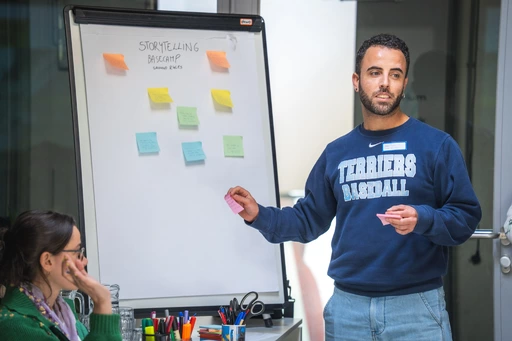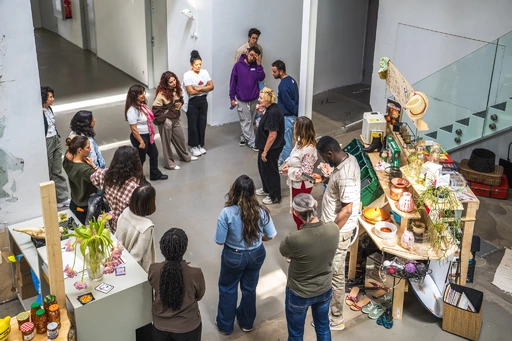
By: New Women Connectors
The stories that are told and shared are the ones that we remember in history, so it’s important to question whose stories are being told and who is telling the story?
Hello everyone, I’m very eager to share with you the experience I felt very fortunate to have had at the Basecamp recently. It’s so good that this is going to be a two-part series.
I was rushing a bit that Friday morning, luckily despite everything I was there just in time, coffee in hand I took the last seat available in the circle of people, some of whom had gotten up earlier than me to get here from other cities. Green, brown, and blue eyes, straight, wavy, curly, red, grey, braided, short hair and a bald head. Everyone wore pants except one person.
The New Women Connectors team started out by introducing themselves Anila Noor (founder of NWC), Kourara Saliba (trainer) and Eszti Galantai (communications officer/event support). Everyone was then welcomed to introduce themselves briefly using an item they brought with them or something they had on them.
Seeds
Hand made pockets
Shoes with pink shoelaces
A Green and Purple water bottles
Prayer beads
A family photo’s
Rings
Traditional clothes
A play picture scrapbook
Other such items were gingerly shared by each participant. All the seemingly ordinary objects flowed into a very personal short introduction from the heart. A mother, sister, friend, child, job, struggle, creative expression, advocacy and a search for connection, understanding and community is what we all shared together in this open space. This seemingly simple starting exercise already brought tears brimming to my eyes and a feeling of all of us being drawn close together immediately took place.
“We’re a family now” stated Anila Noor “As a family we need to co-create some ground rules and own them together.” The reason for these ground rules was to make sure everyone felt safe and able to express themselves. Coloured post its were handed out, the team started out with some suggestions of ground rules that we all voted on, after which we gathered in smaller groups to expand upon these ground rules as well as took individual responsibility to choose one of the ground rules to be the reminder of that rule within our groups. The one I chose to uphold for the day was to respectfully let someone complete their sentence/story. Others were, to not be on your phone during the sessions, this was a bit challenging for me as I was, up until that moment, using my phone to take notes, so I switched to the old school style of scribbling things down with my doctor's handwriting. Others were to use active listening, regulate your emotions by counting to 10 or writing them down, if there was something you disagreed with before you responded. We all recognised that disagreements were going to take place as we were all from different cultures and backgrounds. It was also acknowledged that disagreements were alright to have as they offered different perspectives and stating them helped people gain clarity and understand each other better. Some of the other points which came up were, it's ok to change your mind, activate empathy, don’t give unsolicited advice, be mindful of other pronouns, be aware of cultural sensitivities of consent, what is shared here stays here and that we will respect the privacy of everyone here. Now that these ground rules were collectively established and owned, we moved on to a brief history of storytelling.
Here is a very short synopsis of what was discussed: History tells stories in so many ways, through religions, nature, art, families passing down their stories, movies, media, advertising, newspapers and so much more. Stories are also shared differently though languages and non-verbal communication such as the way you look, talk or your body language. The stories that are told and shared are the ones that we remember in history, so it’s important to question whose stories are being told and who is telling the story? Questions and examples were springing up around the room. “In some movies you feel empathy for the white American soldier who is fighting in a foreign land instead of the pain of the local people who have had the war inflicted upon them.” shared one of the participants. “Colonialism uses control of storytelling to wipe out knowledge and histories of so many people and their cultures. It has also played a role in causing long lasting conflicts within the wake of their exit from various lands.” Yet another pertinent point made. “Haven’t you noticed that stories of refugees in the media are always negative?” asked another. How are stories used, what is the purpose or intention behind telling the story, who is telling or allowed to tell the story? Human rights play a role in storytelling, when you want to speak up or side with a certain story or conflict, understanding the culture where the story stems from and who is telling it is important.
It was evident that to most people in the circle this theme was taking a personal grip and we were all eager to lean in with even more interest for the second half of the day's activities. But first a pause for lunch and with this I will leave you for now, hopefully in contemplation, till part 2.
Photos by: Farouk Ebaiss
